The Latest Healthcare News
Check out our blog to learn more from our team about the latest medical advancements, health tips, and primary care news.

Cold sores, or fever blisters, are caused by herpes simplex, a common viral infection. They often go away on their own, but there are times you should seek treatment. At AllCare, our dedicated immediate care physicians can offer a precise diagnosis and treatment plan for cold sores, ensuring your comfort through every step of your journey.
If you’ve ever experienced a cold sore, you know how painful and frustrating it can be. Cold sores typically develop around your mouth and lips, but they can also appear on your nose, cheeks, or chin. Once you experience a cold sore, the virus that causes it will remain in your system forever. In some cases, you may never have another cold sore outbreak. However, the virus may occasionally reactivate, causing a new series of cold sores.
Our team of expert healthcare professionals at AllCare will perform a thorough examination and conduct any necessary tests to confirm that you are experiencing a cold sore outbreak and not another condition with similar symptoms. We’ll then provide a personalized treatment plan, ranging from antivirals to at-home remedies, to help relieve your discomfort. At AllCare, you can receive comprehensive primary and immediate care in one convenient location, making your path to recovery smoother and more efficient.
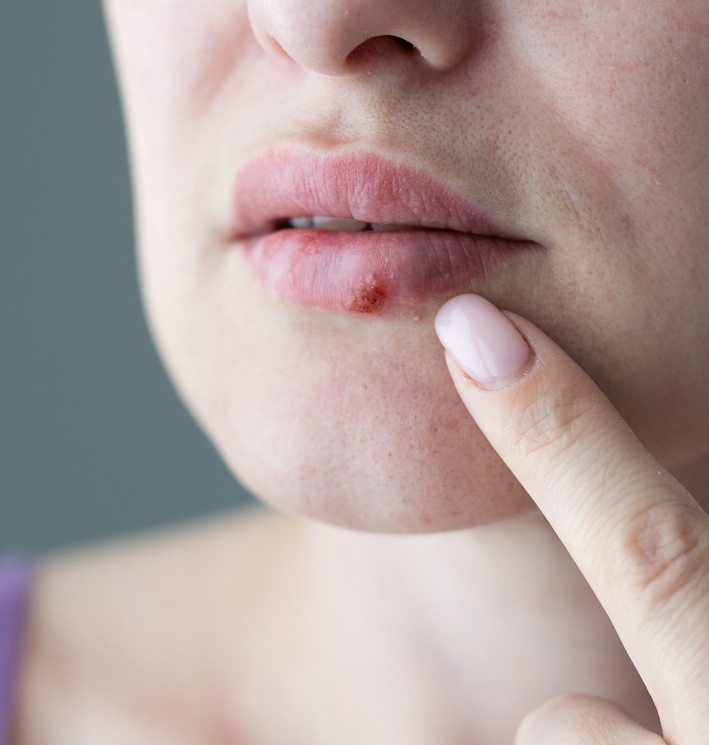
A cold sore, also known as a fever blister, is a small, fluid-filled blister that typically appears on or around the lips. It is caused by the herpes simplex virus (HSV-1), although HSV-2 (associated with genital herpes) can also cause cold sores in some cases. Once the virus is in the body, it remains dormant in nerve cells and can reactivate periodically, often triggered by factors like stress, illness, or sun exposure.
Symptoms of cold sores can vary from person to person. Some people don’t even have symptoms with their first attack. Cold sore symptoms include:
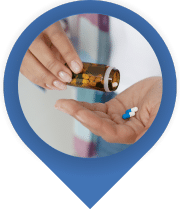
Anesthetic gels, anti-inflammatories, or antiviral medications in either oral or ointment form may be recommended to help speed up the healing process. We may also recommend over-the-counter OTC medications, including pain medications like acetaminophen, naproxen, or herpes balms, to help relieve the pain, swelling, and redness.
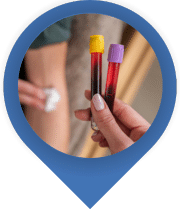
If you are being tested for other sexually transmitted diseases, we may also perform blood tests to look for the herpes simplex virus. If you have a partner with genital herpes, you may want to request a blood test to see if you have the virus.

One of our immediate care physicians will review your medical history and discuss your symptoms, including your overall health and wellness. In most cases, your physician can diagnose a cold sore simply by a visual examination.
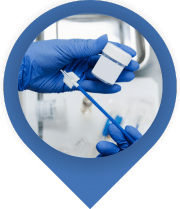
In some cases, we may take a fluid sample from the blister to confirm a herpes simplex virus (HSV) infection.
You might feel tingling, itching, or pain on your lip or the surrounding skin. This is the first indication that a cold sore may be on its way. This stage, known as the prodromal stage, means that the virus is becoming active again in your nerve cells.
Within 24 hours of those initial sensations, small bumps may develop on or around your lips, usually along the outer edges. You might notice three to five bumps, although the number can vary. These bumps will fill with fluid, making them look like blisters, and the area can become red, swollen, and painful.
During this period, the blisters will likely burst, releasing a clear or slightly yellow fluid. This is often referred to as the “weeping” phase.
After a couple of days, the blisters will stop oozing and start to form a crust. This crust often appears as a golden-brown scab, covering the sore as it heals. Sometimes, the scab may crack or bleed.
Typically, the scab will fall off within six to 14 days after the outbreak begins. The skin beneath may look slightly pink or red for a few days but will eventually return to normal.
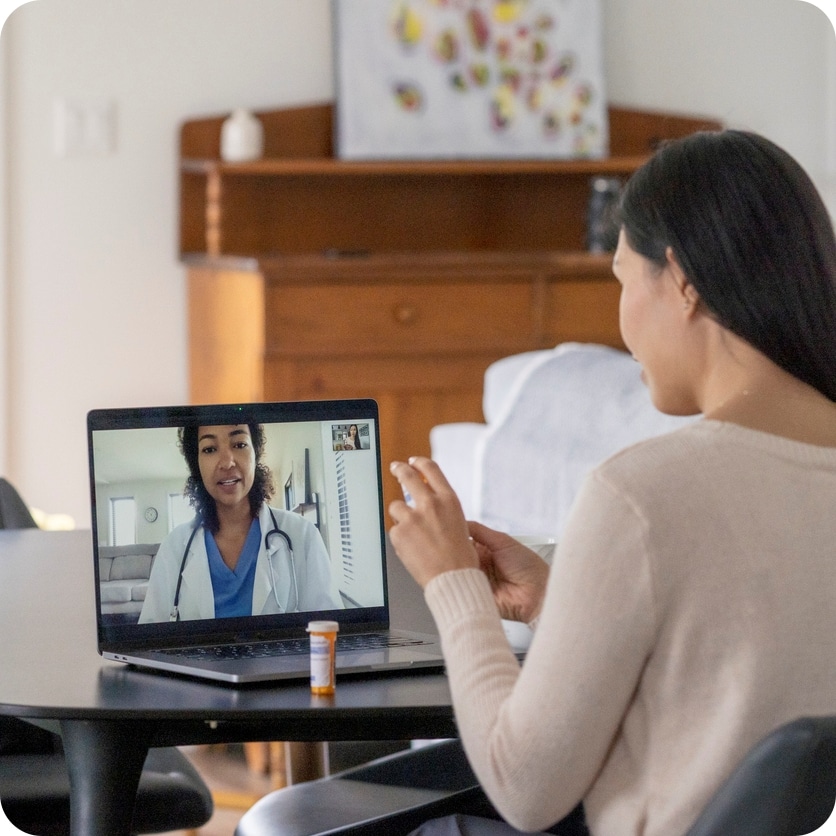
Experience the convenience of telehealth appointments at AllCare. Our telemedicine services are designed to provide you with seamless access to healthcare without the need to leave your home. Whether you need an online doctor’s appointment for immediate or primary care, AllCare’s got you covered. With our online telehealth services currently available to individuals located in Virginia, Maryland, and Washington, D.C., you can connect with our experienced immediate and primary care physicians via secure video calls.
At AllCare, we are expanding our virtual healthcare access to all services previously offered in person. This includes:
Anyone experiencing the tingling, itching, pain, or blisters of cold sores can benefit from our cold sore treatment. While most cold sores will clear up on their own, you should seek medical attention if:
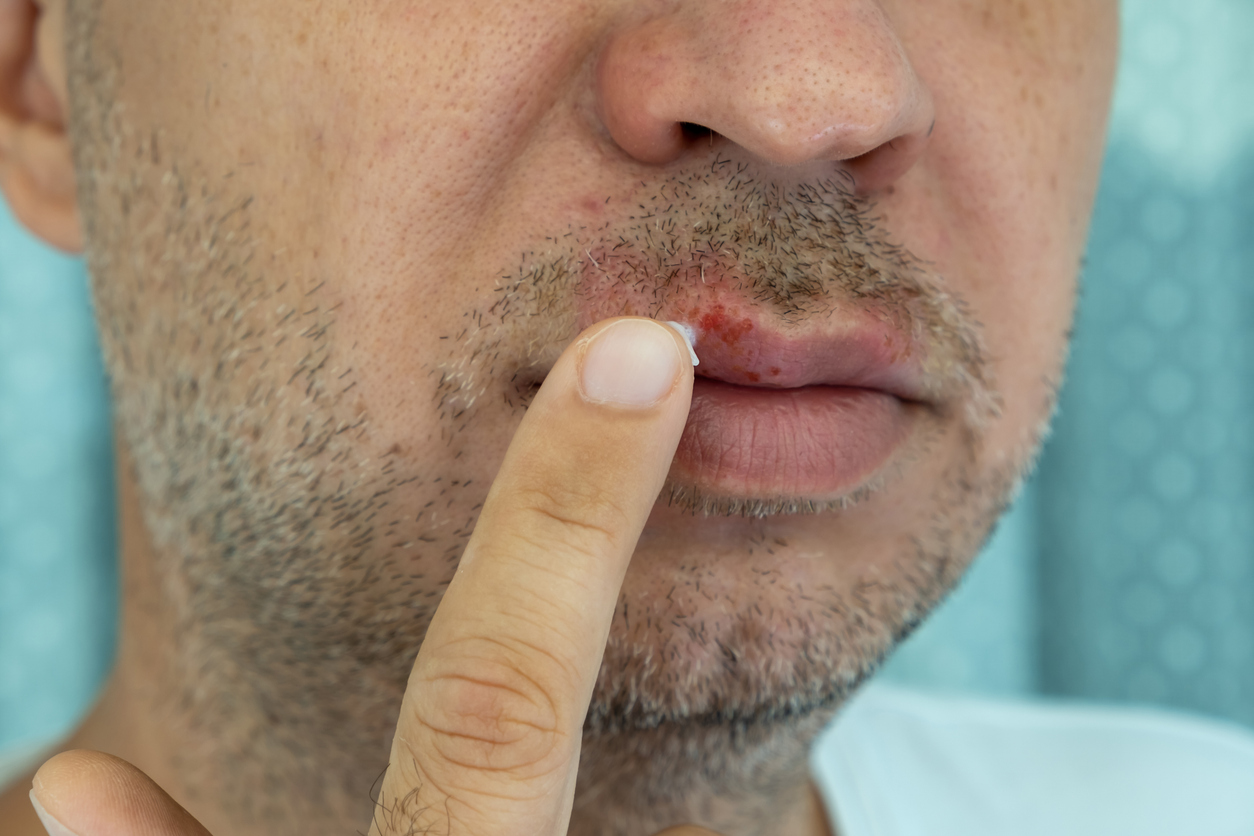
Getting diagnosed and treated for cold sores is as easy as scheduling an appointment at AllCare, but you can also see a doctor at our facilities on a walk-in visit if needed. Here are a few simple steps for getting treated for cold sores:
Cold sores are caused by the herpes simplex virus, a common virus that can remain inactive in the body. Cold sores are not directly linked to colds, fevers, or the flu; however, individuals with weakened immune systems may be more susceptible to outbreaks.
Yes, cold sores are very contagious and most contagious when they burst. If you have a cold sore, you should avoid kissing, oral sex, or sharing eating or drinking utensils until your cold sore is completely healed.
Cold sores are extremely common, affecting a significant portion of the global population. According to the World Health Organization (WHO), an estimated 67% of people under the age of 50 worldwide are infected with the herpes simplex virus type 1 (HSV-1), which is the primary cause of cold sores.
In the United States, it’s estimated that about 50% to 80% of adults carry the virus, although not everyone will experience visible outbreaks. Many people contract HSV-1 during childhood through nonsexual contact, such as being kissed by a relative with an active cold sore.
Cold sores are most commonly spread through direct contact with the fluid from an active blister, such as through kissing or touching the sore. The virus can also spread via contaminated surfaces, including shared utensils, towels, or lip products. Additionally, oral sex can transfer the virus between the mouth and genitals. Even when sores aren’t visible, HSV can sometimes shed from the skin, making it possible to contract the virus from someone who appears asymptomatic.
If you’re infected with the virus, it’s important to avoid triggers such as stress, fatigue, and excessive sun or wind exposure. You can also strengthen your immune system by getting enough sleep, regular exercise, and a balanced diet. If you’re prone to outbreaks from sun exposure, wear sunscreen and limit time in the sun.
If you are not infected with the virus, protect yourself by avoiding skin-to-skin contact with someone who has a cold sore, washing your hands after contact, and not sharing utensils or personal items.
At AllCare, we’re proud to deliver exceptional primary and immediate care to residents across Virginia, Maryland, and Washington, D.C. From bustling city centers to serene suburban neighborhoods, our clinics are strategically placed for your convenience and care. Experience top-tier cold sore treatment in your community with AllCare, where your health is our priority.
Check out our blog to learn more from our team about the latest medical advancements, health tips, and primary care news.
Seasonal Affective Disorder (SAD) represents a significant mental health concern affecting approximately 5% of adults in the United States. This […]
Read More >Mammograms save lives. Early detection of breast cancer through proper screening will give a patient a remarkable 99% five-year survival […]
Read More >Most people are aware that diet, exercise, and genetics affect cholesterol levels. But can stress raise your cholesterol? The answer […]
Read More >Our related healthcare services extend beyond immediate care to include preventive care such as routine physical exams, chronic disease management for conditions like diabetes, and specialty care referrals for more complex health issues.